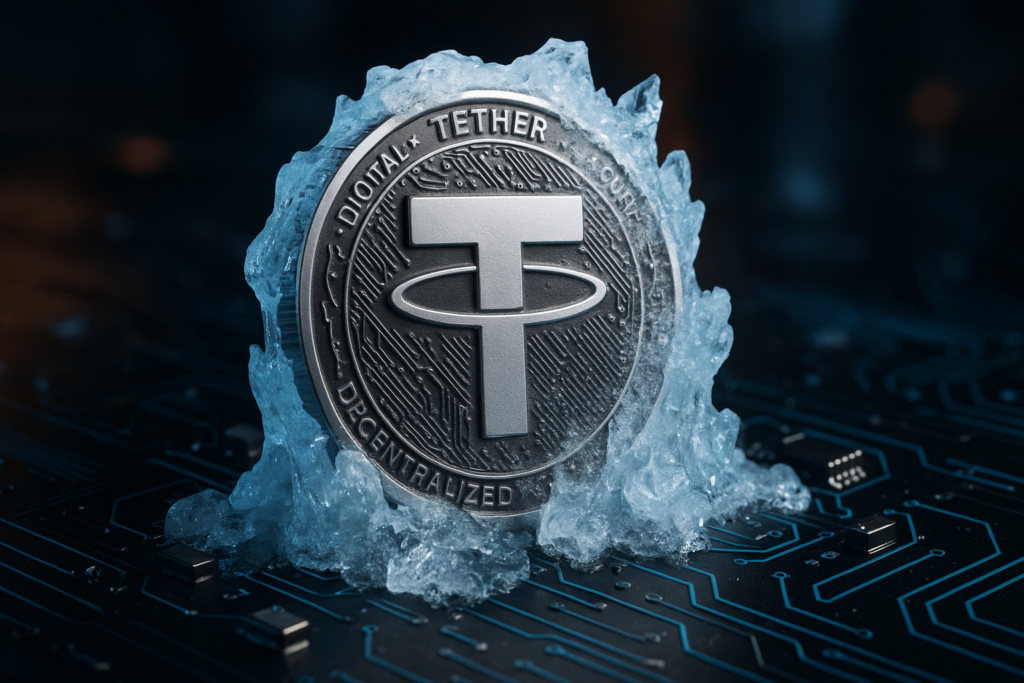Tether, the issuer of the world’s largest stablecoin USDT, has frozen over $12.3 million worth of digital assets on the Tron blockchain in an ongoing effort to combat financial crimes within the crypto ecosystem.
The freeze was executed at 9:15 am UTC on June 15, according to data from Tronscan.
Though Tether has not officially commented, the freeze appears to be linked to concerns over Anti-Money Laundering (AML) violations and potential sanctions risks, in line with Tether’s long-standing compliance practices.
Tether’s Wallet Freezing Policy
Tether enforces a strict wallet-freezing policy that aligns with the U.S. Treasury’s Office of Foreign Assets Control (OFAC) and its Specially Designated Nationals (SDN) List.
“Tether enforces a strict wallet-freezing policy to combat money laundering, nuclear proliferation, and terrorist financing,” the company stated in a March 2025 update.
This policy empowers Tether to freeze funds believed to be associated with illicit activity or sanctioned entities.
Previous Freezes and Garantex Controversy
This latest action follows a pattern of recent enforcement:
- On March 6, Tether froze $27 million in USDT linked to wallets on the now-defunct Garantex exchange, a Russia-based platform sanctioned by OFAC in 2022.
- Despite sanctions, over $15 million in active reserves tied to Garantex were still detected on June 5, indicating ongoing compliance challenges.
Garantex accused Tether of targeting the Russian crypto market after wallets worth over 2.5 billion rubles ($27M) were blocked.
Tether’s Role in Combating Illicit Activity
Tether has taken a more aggressive role in fighting financial crime through its T3 Financial Crimes Unit (FCU) — a joint effort with Tron Network and TRM Labs.
The FCU froze $126 million in USDT during its first six months, assisting law enforcement agencies in disrupting illegal crypto flows.
One of the primary targets of these crackdowns includes the Lazarus Group, a North Korea-linked hacker collective responsible for over $3 billion in crypto thefts between 2017 and 2023.
Conclusion: A Balancing Act Between Compliance and Decentralization
While Tether’s asset-freezing power raises concerns among decentralization advocates, its compliance-driven approach is credited with preventing large-scale crypto laundering — especially in cases involving sanctioned entities and criminal networks.
The $12.3 million freeze underscores Tether’s expanding role as an enforcement ally in the evolving crypto regulatory landscape.
Disclaimer
This content is for informational purposes only and does not constitute financial, investment, or legal advice. Cryptocurrency trading involves risk and may result in financial loss.

